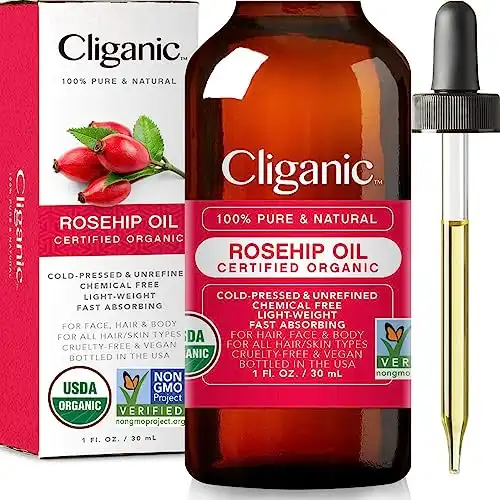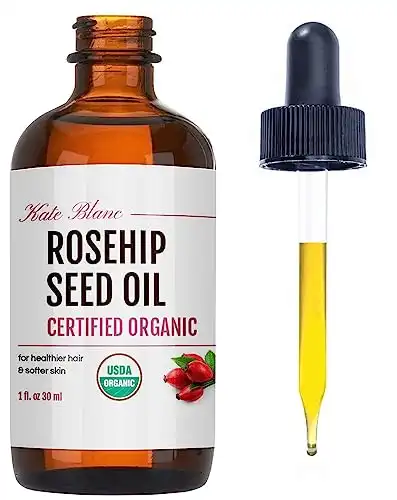Your skin changes as you age and no longer looks as smooth and plump as it once did. It is because it loses fat and thus, becomes thin. As you can imagine, your veins and bones are more visible, and wounds also take longer to heal. For instance, tanning was all the rage in the 70s, and the people who did it are now finding out that it promotes wrinkles, fine lines, age spots, and even skin cancer in older age.
Fortunately, you can protect your skin and make it feel and look better even after the damage. According to some studies, body oil plays a vital role in preventative anti-aging. It adds a protective layer to the skin and traps moisture. As you can see, proper hydration is one of the best preventive measures against wrinkles, and this is why choosing the best body oil becomes essential.
Can Body Oil Help You Fight Aging? Here Are the Facts.
Plant oils are from flowers, leaves, roots, and other parts of various plants. For thousands of years, they have had cosmetic purposes. With modern-day technology, we can now process plant oils to maintain the integrity of the beneficial compounds. These are bioactive and quite soothing for the skin. Each oil offers different properties, and these depend on the molecular makeup of the plant. They range from hydration, anti-aging, antibacterial, and fast-healing.
According to some studies, the application of oils on your skin plays a vital role in preventative anti-aging. They create a protective layer on the skin that traps moisture. It doesn’t just help maintain hydration levels but also prevents wrinkles. Some research also links the antioxidants in these oils to an ability to protect against environmental factors such as pollution and UV sun rays. It doesn't mean to bake out in the sun without SPF, though!
So, what’s better for dry skin? Oil or moisturizer? Both. It is because these skincare items accomplish different things. At least in terms of anti-aging. Moisturizers penetrate the skin and provide hydration, while oils help seal in the moisture and protect the skin’s natural lipids. After applying moisturizer, you should layer the oil over it whenever your skin is extra dry.
Types of Body Oils and Their Functions
Synthetic Oils
These are sometimes known as “natural equivalents.” They’re primarily made from petrochemicals and attempt to duplicate the specific smell of a plant. Synthetic oils are 95% of the chemicals found in mineral oil. These oils and petroleum jelly are both by-products of petroleum production. To get the fragrances to spread and dissipate into the air, the manufacturer needs to add many toxic chemicals like benzene derivatives, aldehydes, and many other known toxins that can negatively affect your health.
So, why on Earth do people use these harmful oils? It’s a simple answer: they're cheaper. However, they lack all the natural oils' energy and therapeutic properties. The advantages of synthetic oils are the cost and the fact that the manufacturer isn't limited to natural extracts. They also have a slightly longer shelf life. The disadvantages are they contain known carcinogens, have no aromatherapy benefits, don’t influence your emotions and decisions, and can produce harmful respiratory issues and allergic reactions.
Furthermore, producers don’t have to label all the ingredients by law. It makes it so you can never be precisely sure what’s in the synthetic oil. However, we know that most of them contain 95% petroleum jelly, which was the other by-product of petroleum production. I don't know about you, but we like to know what we're putting in and on our bodies.
Essential Oil
These oils, which include tea tree oil, argan oil, and lemon oil, are increasing in popularity as ingredients for skincare. Their antibacterial and antifungal qualities make them quite potent. Because of this, they’re more likely to produce allergic reactions than other oils such as olive and coconut oil. Use with caution and in small quantities. Always test a small amount first on your skin and wait to see if a reaction appears.
There are many advantages to these oils, though. Apart from their aromatherapeutic properties, they're also proven to influence your mood and decisions. Also, they naturally dissipate and remain longer in the air. Essential oils are natural, and there are various pleasant fragrances to choose. They're more expensive than synthetic oils because they rely on natural sources. They’re worth the extra cost, though.
Carrier Oil
Carrier oils are naturally made from plants and used to dilute essential oils. They're named because they “carry” the essential oils to your skin. Essential oils are potent and can irritate when applied directly to your skin. In turn, most carrier oils are unscented and won’t interfere with the therapeutic properties of the essential oil.
Organic Natural Oils
Look in your pantry. You probably have some olive, coconut, or sunflower oil in there. Can you use such cooking oils on your face? Yes, but they’re not the best ones for this purpose. Cooking oils tend to be more refined than natural oils to make them better for cooking. It causes them to lose many of their therapeutic properties. It’s possible to find extra-virgin, cold-pressed, unrefined versions of these oils. These are the best to use for your hair and skincare routine. It would help if you asked your doctor before using any new product. But, to get you started, here are some of the most popular types of oils and their properties.
Coconut Oil
This oil is from the mature coconut kernel of a coconut palm. It has many properties, including vitamins E and K, and antifungal and antibacterial. However, it does increase the probability of causing breakouts. In general, coconut oil is an excellent option for almost everyone except if you already have naturally oily skin and are acne-prone. Coconut oil works better at moisturizing your skin when used with a carrier. Remember, look for cold-pressed, unrefined coconut oil when you’re using it for your face and skincare.
Coconut Oils We Love
-
$15.95Buy Now
by MAJESTIC PURE
We earn a commission if you make a purchase, at no additional cost to you.
03/08/2024 11:17 am GMT -
$9.99 ($0.62 / Fl Oz)Buy Now
by Handcraft
We earn a commission if you make a purchase, at no additional cost to you.
03/08/2024 11:22 am GMT -
$13.96 ($0.87 / Fl Oz)Buy Now
by NOW Solutions
We earn a commission if you make a purchase, at no additional cost to you.
03/08/2024 11:32 am GMT
Olive Oil
Produced by pressing a whole olive and extracting the oil, this is one of the most popular oils for cooking and skincare. It doesn’t typically trigger any allergic reactions. Just like with coconut oil, always look for extra-virgin. It's a great moisturizer and contains vitamins A, E, and K. It also has a heavy consistency, making it an excellent choice to apply all over your body. You can find cleansers and bars of soap made from olive oil designed to keep your skin moist.
Olive Oil Sprays We Love
-
$24.99 ($5.00 / Fl Oz)Buy Now
by US Organic
We earn a commission if you make a purchase, at no additional cost to you.
03/08/2024 06:13 am GMT -
Buy Now
by Villa Floriani
We earn a commission if you make a purchase, at no additional cost to you.
-
$15.80 ($7.90 / Fl Oz)Buy Now
by Okay
We earn a commission if you make a purchase, at no additional cost to you.
03/08/2024 06:22 am GMT
Sunflower Seed Oil
Another extract from a seed, sunflower seed oil, is widely available and nutritious. It’s high in vitamin E, which absorbs easily into the skin. It makes it an excellent choice as a moisturizer. Some studies have found that sunflower oil protects the skin better than olive oil and doesn’t cause aggravated atopic dermatitis (eczema).
Sunflower Seed Oils We Love
-
$7.99 ($2.00 / Fl Oz)Buy Now
by Maple Holistics
We earn a commission if you make a purchase, at no additional cost to you.
03/08/2024 11:57 am GMT -
$14.99 ($0.94 / Ounce)Buy Now
by Life-Flo
We earn a commission if you make a purchase, at no additional cost to you.
03/08/2024 12:21 pm GMT -
$14.99 ($0.94 / Fl Oz)Buy Now
by Premium Nature
We earn a commission if you make a purchase, at no additional cost to you.
03/08/2024 12:50 pm GMT
Shea Butter
Although it’s called “butter,” shea butter is an oil derived from the nuts of the African shea tree. It has a thick consistency like lard or butter. However, it melts at room temperature. It’s a prevalent ingredient in moisturizing and hair products. Allergic reactions could happen with this oil, but they're rare. Always get the unrefined and organic shea butter. Try combining it with olive or coconut oil for a smoother texture and more straightforward application.
Shea Butters We Love
-
$7.97 ($0.61 / Ounce)Buy Now
by OKAY
We earn a commission if you make a purchase, at no additional cost to you.
03/08/2024 12:32 pm GMT -
$23.78 ($1.49 / Ounce)Buy Now
by Sky Organics
We earn a commission if you make a purchase, at no additional cost to you.
03/08/2024 12:57 pm GMT -
$14.69 ($0.92 / Ounce)Buy Now
by NOW Solutions
We earn a commission if you make a purchase, at no additional cost to you.
03/08/2024 01:18 pm GMT
Jojoba Oil
Jojoba is a bush native to Mexico and the American Southwest. Its oil has been extracted from its seeds and used medicinally for a long time by Native American tribes. It's not as common as most other oils, but it’s pretty good for the skin. Jojoba oil is an anti-inflammatory and has wound-healing effects, among other skin benefits.
Jojoba Oils We Love
-
$9.99 ($2.50 / Fl Oz)Buy Now
by Cliganic
We earn a commission if you make a purchase, at no additional cost to you.
03/08/2024 01:32 pm GMT -
$10.97 ($2.74 / Fl Oz)Buy Now
by Leven Rose
We earn a commission if you make a purchase, at no additional cost to you.
03/08/2024 04:56 pm GMT
Almond Oil
This oil is from pressed raw almonds. It has many properties and contains vitamin E, zinc, proteins, and potassium. It has a lighter texture than olive and shea butter, making it more appealing to use on the face. Be careful, as almond oil could bring about an allergic response if you're allergic to this nut. Also, it’s not for people who have sensitive skin.
Almond Oils We Love
-
$11.02 ($0.69 / Fl Oz)Buy Now
by NOW Solutions
We earn a commission if you make a purchase, at no additional cost to you.
03/08/2024 05:07 pm GMT -
$9.99 ($0.62 / Fl Oz)Buy Now
by Handcraft
We earn a commission if you make a purchase, at no additional cost to you.
03/08/2024 05:13 pm GMT -
$11.99 ($0.75 / Fl Oz)Buy Now
by Viva Naturals
We earn a commission if you make a purchase, at no additional cost to you.
03/08/2024 05:17 pm GMT
Grapeseed Oil
As you can see, most oils come from pressing the seeds and collecting the oil. Grape seeds also contain this natural oil filled with vitamin E and essential fatty acids. It also has antioxidant, antimicrobial, and anti-inflammatory properties. It’s less common for the skin than other oils, but no allergic reactions have been observed.
Grapeseed Oils We Love
-
$9.99 ($0.62 / Fl Oz)Buy Now
by Handcraft Blends
We earn a commission if you make a purchase, at no additional cost to you.
03/08/2024 05:22 pm GMT -
$5.99 ($0.75 / Fl Oz)Buy Now
by Brooklyn Botany
We earn a commission if you make a purchase, at no additional cost to you.
03/08/2024 05:27 pm GMT -
Rosehip Seed Oil
From the seeds of wild rose bushes, you can get rosehip oil. It's increasing in popularity and is in facial moisturizing and anti-aging skincare products. It contains many essential fatty acids, antioxidants, and vitamin A. Additionally, it offers a lot of protection against inflammation and oxidative skin damage. If you have eczema, this oil can show promising results.
Rosehip Seed Oils We Love
-
$14.95 ($3.74 / Fl Oz)Buy Now
by Radha Beauty
We earn a commission if you make a purchase, at no additional cost to you.
03/08/2024 05:33 pm GMT -
$9.99Buy Now
by Cliganic
We earn a commission if you make a purchase, at no additional cost to you.
03/08/2024 05:42 pm GMT -
$9.99Buy Now
by Kate Blanc Cosmetics
We earn a commission if you make a purchase, at no additional cost to you.
03/08/2024 05:46 pm GMT
Things to Keep in Mind to Select the Best Body Oil for You
You might be feeling overwhelmed with so many oil options, but don’t be! Here are some general guidelines you should consider when choosing a body oil.
Firstly, like with anything you’re going to consume, read the ingredients thoroughly to ensure any oils you use on your face are natural. Avoid synthetic ones like mineral oil (baby oil) and paraffin as much as you can, as these won't only irritate the skin but they link to cancer. Other “natural” oils contain filler ingredients such as silicone. They’re mainly used for fragrance or texture and can easily irritate your skin. Remember: less is best when it comes to ingredients. Processing is also crucial in determining how nutrient-rich the oil is, and cold-pressed is the best extraction method. The second best method is cold extraction.
So, you must choose your oils with care. They can be an extremely beneficial addition to your skincare routine, but only if you select high-quality products. Also, remember that price doesn’t determine quality. You have to read the ingredients and look for words and labels such as “Certified Organic, “Non-GMO,” “small-batch,” “unrefined,” “wildcrafted,” “handmade,” etc. These labels will help you choose a great product.
Using Oils for Your Skin Care Routine
The best time to apply any oil is right after a shower because your pores are open. Remember that a little goes a long way when it comes to oil. After drying off with a towel, put a dime-sized amount of oil on the palm of your hand. This way, you’ll avoid over-application and a greasy mess. You can also add more if you need to. Oil up, baby, but there is no need to look like a greased wrestler.
Applying oil to your skin may seem counterintuitive if you’re trying to resolve acne problems. These are already caused by oils, after all. So maybe you think you’ll get a breakout or even more clogged pores. However, this isn’t how body oils work. The most important thing is figuring out what oil works for your skin.
What You Eat Reflects On Your Skin
Natural oils are an excellent ally for your skin, but they won’t do all the work. Your skin shows many factors such as stress, sweat, heat, environment, skin type, sun exposure, and what you eat. A healthy diet can be a great compliment to your body oils. Let’s look at what’s most important when concerning your skin.
Omega-3 Fatty Acids
We didn't mention many others, such as avocado oil and lavender oil, but one of the most important ones you can consume is fish oil. They are a significant source of omega-3 fatty acids. These nutrients you get from food or supplements help you build and maintain a healthy body. They also fortify the structure of your cell walls, most notably the skin cell. Furthermore, they’re a significant source of energy that helps your heart, lungs, blood vessels, and immune system work properly.
There are many omega-3 fatty acids, but the most important ones are EPA and DHA. They’re in certain fish. ALA is another omega-3 fatty acid found in plant sources such as nuts and seeds, while DHA is vital for your retinas, brain, and sperm cells. You need these fatty acids to function, but having extra of them will deliver some health benefits.
So, what are these benefits? Fish oil can help lower elevated triglyceride (blood fat) levels. Having high levels of this can put you at risk for heart disease and stroke. Omega-3 fatty acids can help curb stiffness and joint pain, which is essential for someone with rheumatoid arthritis. Many people take fish oil supplements, especially if they don’t have access to fresh fish. Researchers have found that cultures that eat a lot of fish have lower levels of depression. However, there needs to be more research to prove this fully. It’s essential in developing your body, especially visually and neurologically—these fatty acids lower inflammation, a critical component in asthma.
Other studies have also found that fish oil can reduce the symptoms of ADHD in some children and improve their mental skills, like thinking, remembering, and learning. Because of this, it also treats Alzheimer’s disease and dementia. These conditions linked to aging develop gradual memory loss, so omega-3 fatty acids can help slow it down to some degree.
Sources of Omega-3 Fatty Acids
It’s always best, when possible, to get your omega-3 fatty acids directly from food instead of supplements. The best way to do so is to eat fish high in DHA and EPA omega-3 fatty acids at least twice a week. These include oily fish such as anchovies, bluefish, herring, mackerel, marlin, orange roughy, salmon, sardine, sturgeon, lake trout, and tuna. However, be aware that there’s a downside to this. Unfortunately, due to the contamination of our oceans, mercury and other toxins have become a big problem with fish. Mercury is a toxin that can slowly poison your body. Farm fish is the best option since you can choose and find a sustainable place with clean water.
Fish are rich in certain omega-3 fatty acids, but not in all of them. ALA is another fatty acid that's important for your health. You can find these in walnuts, flaxseeds, canola, soybean, and chia seeds. However, the oils and nuts can be high in calories, so eat them in moderation. If you can find a way to mix fish with these (and fresh vegetables), you’ll have a very healthy meal.
Perhaps you don’t like fish or are a vegetarian. Well, if this is the case, you should consider taking supplements. Always talk to your doctor first before taking them. They’ll be able to analyze your situation and recommend the best dose depending on your health or other medication you take. Over-the-counter fish oil supplements exist, but prescriptions are also available, which are closely monitored for quality and safety by the FDA. They're usually for adults with high triglycerides. Also, specific ailments such as cardiovascular disease could worsen with omega-3, so discuss it with your doctor.
Final Thoughts
So, can body oil help you fight aging? You bet! You have to be aware that the results won’t make you look 20 again. Furthermore, aging is a constant, natural process of change and many bodily functions decline during early middle age. The best you can shoot for is to age gracefully, and you must begin early on, as everything you do throughout your life will impact you when you’re older.

































